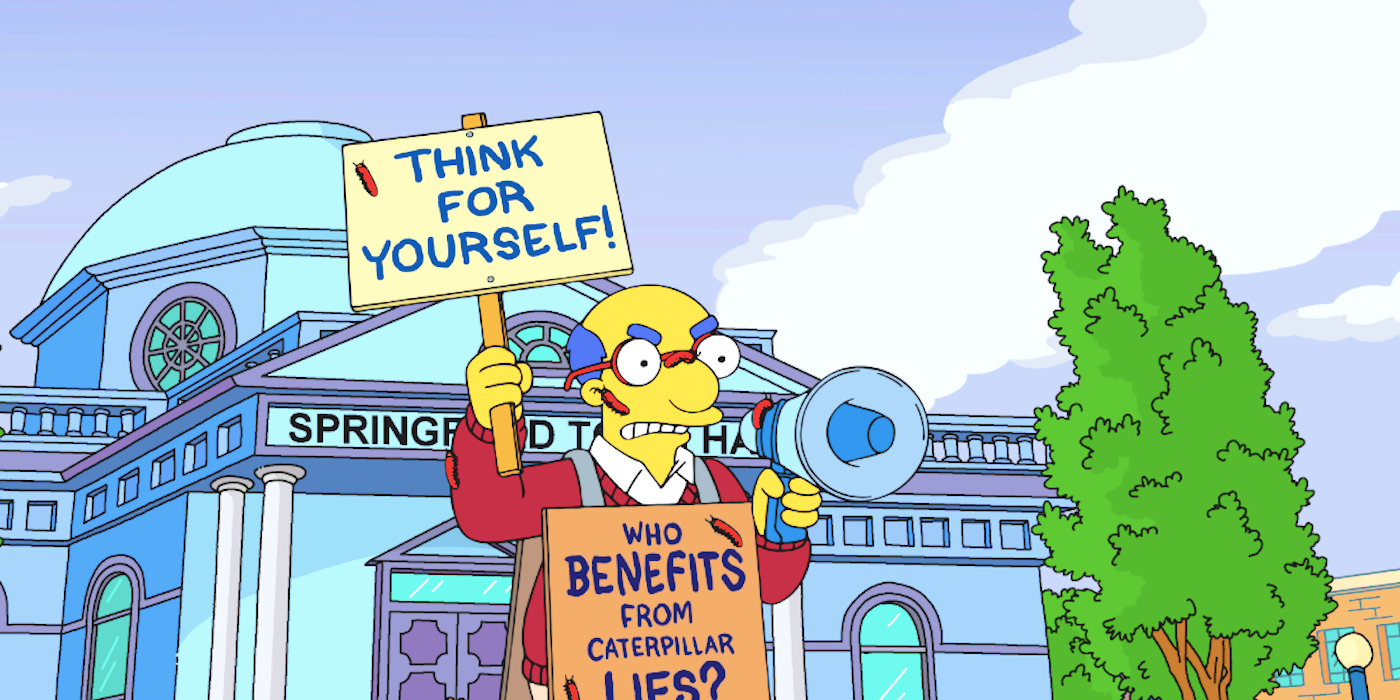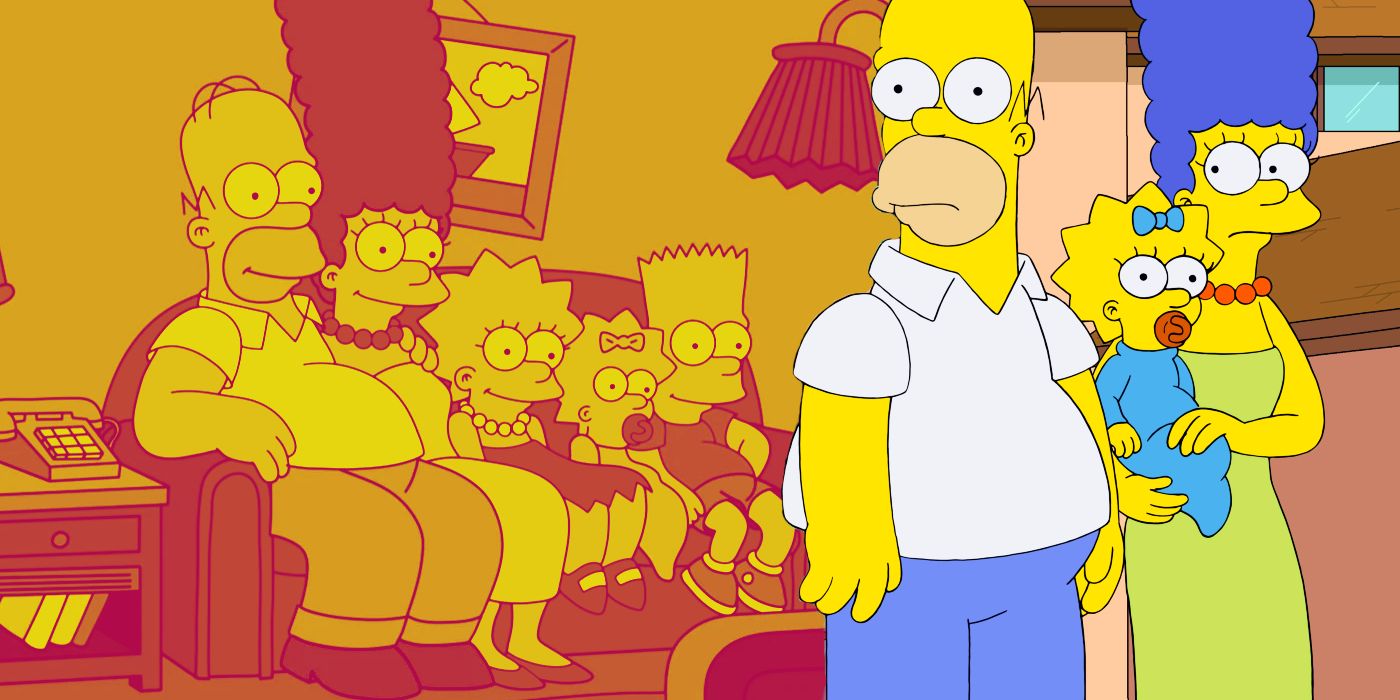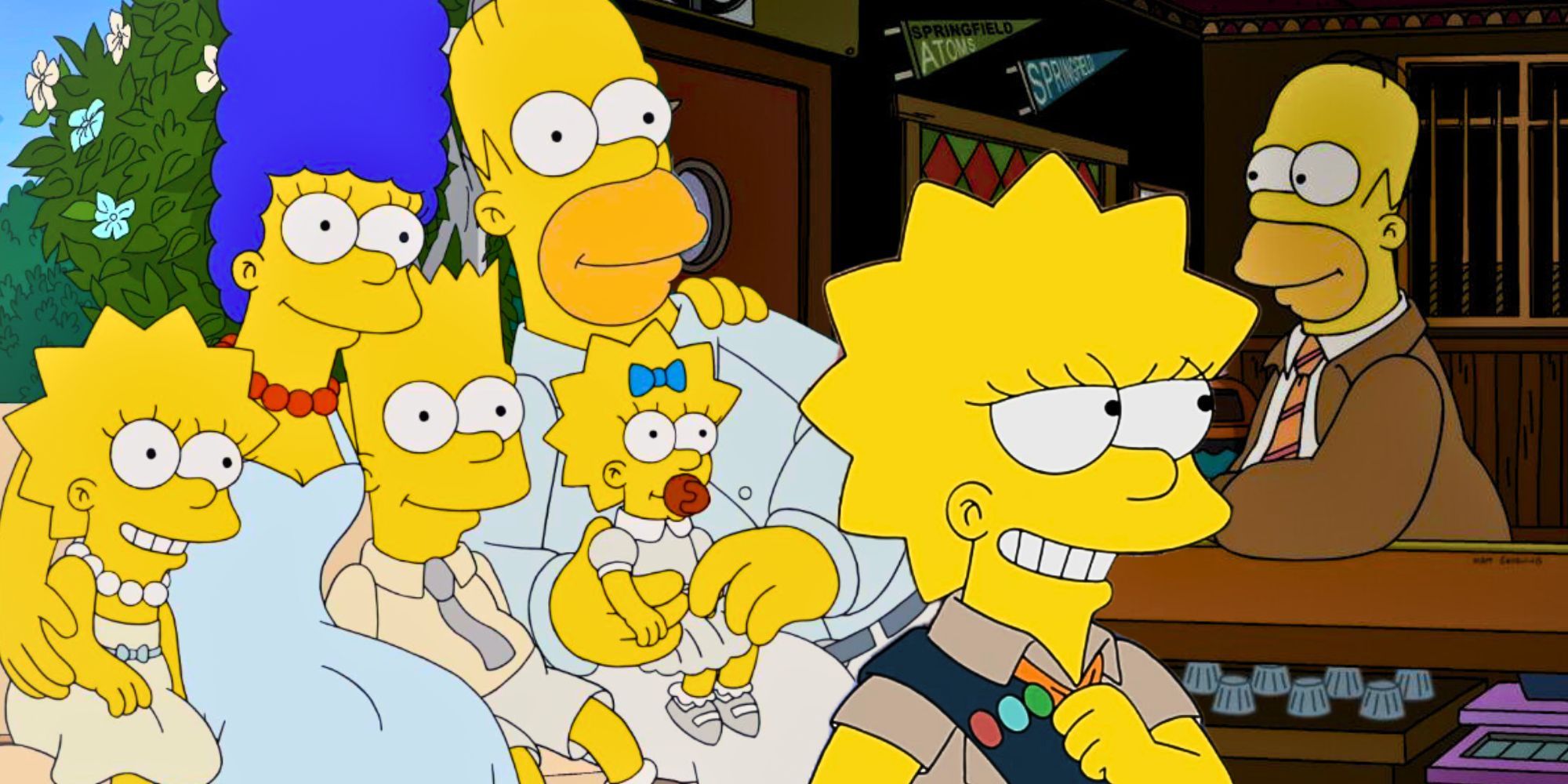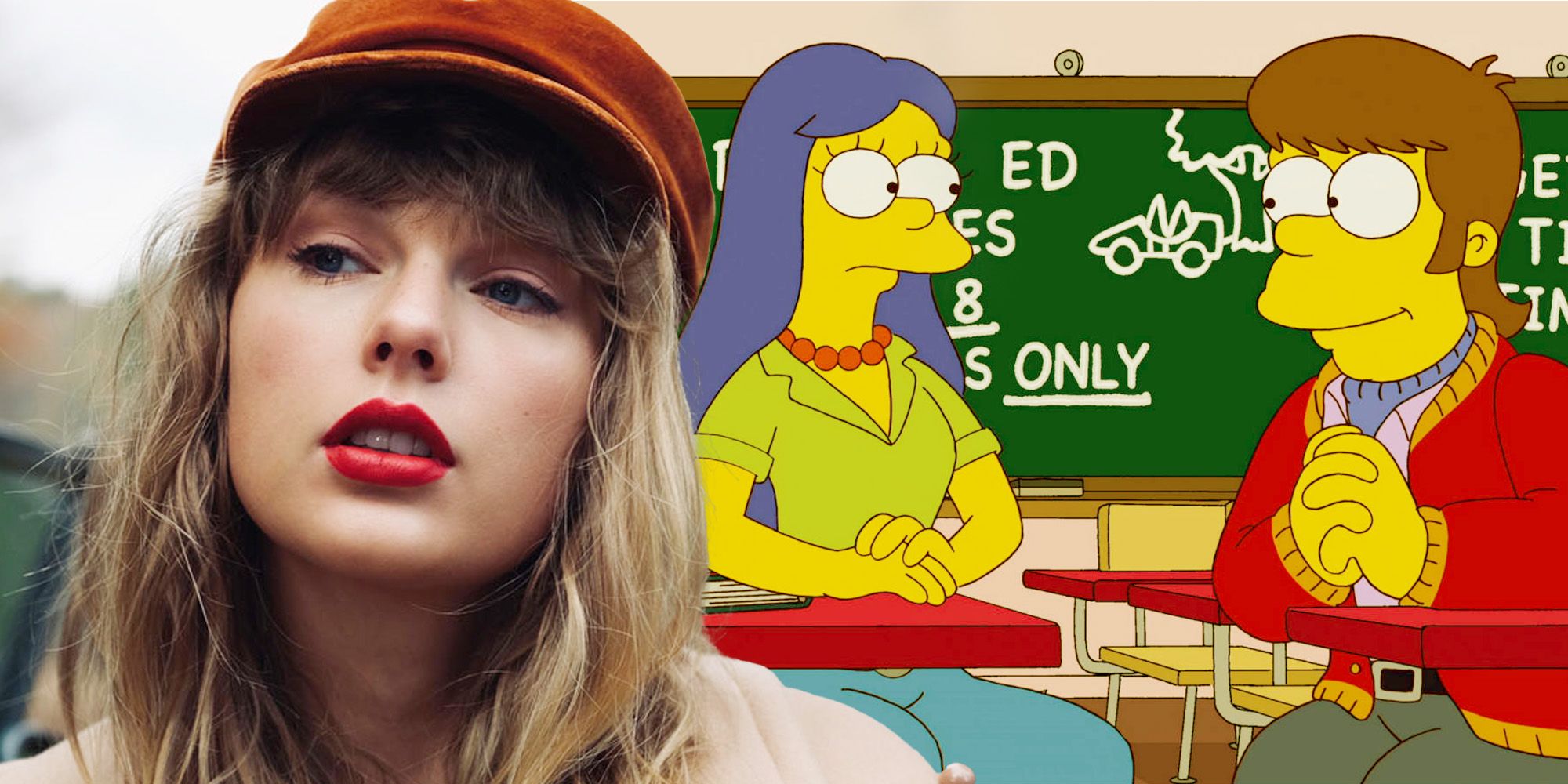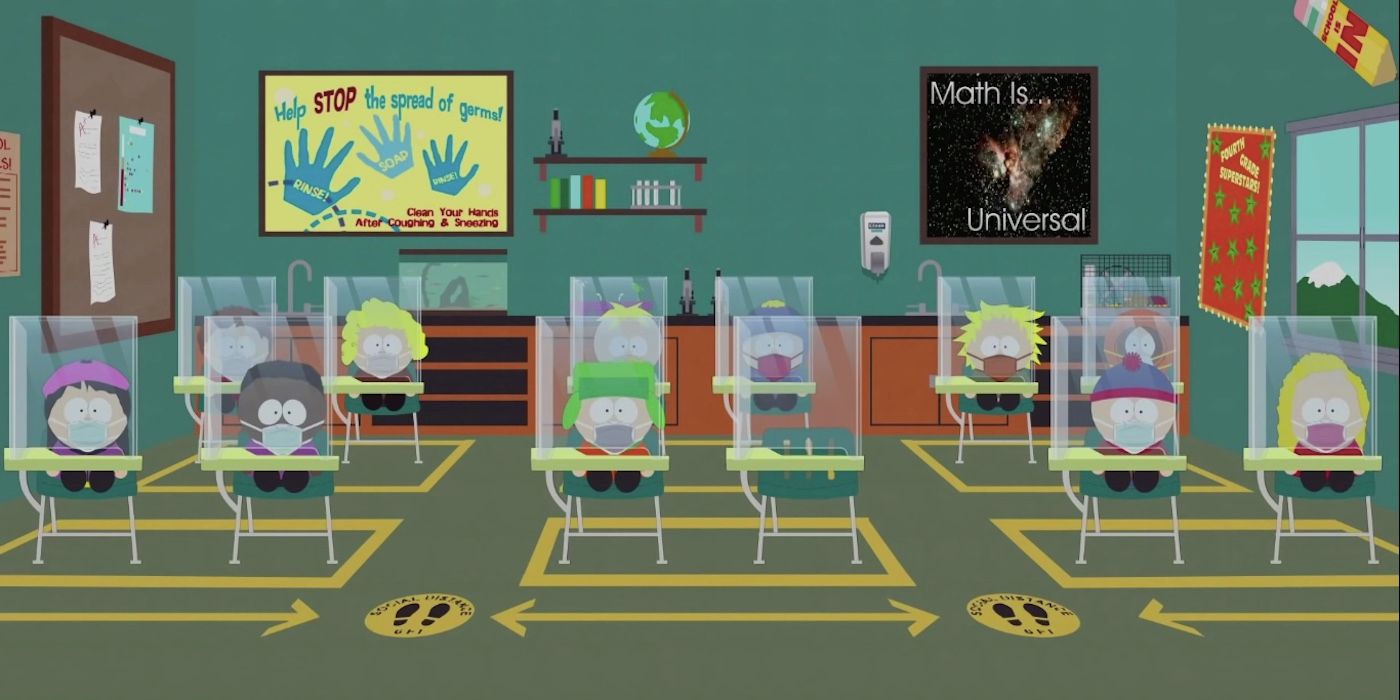Warning: Spoilers for The Simpsons season 34, episode 20.
While The Simpsons season 34, episode 19 never technically mentioned COVID-19 directly, the outing was the show’s long-awaited attempt at satirizing the global pandemic. The Simpsons has a funny relationship with reality. On the one hand, the long-running animated family sitcom is a cartoon comedy, meaning its goofy version of reality bears almost no resemblance to the real world. Yet, on the other hand, The Simpsons constantly reference real-life political events, cultural phenomena, and public figures. In addition, the show has featured more celebrity cameos from famous faces playing themselves than almost any other show in television history. As such, it is tough to tell how much The Simpsons is expected to reflect reality.
Sometimes, The Simpsons uses this confused cultural position to the show's advantage. For example, when The Simpsons quietly dropped Hank Azaria’s Apu after accusations that the character was based on problematic stereotypes, the series didn’t mention this real-life controversy. Instead, The Simpsons simply stopped depicting the character without comment. However, in a series of eight short animated vignettes released on YouTube in the run-up to the 2020 election, The Simpsons offered a detailed satirical takedown of Donald Trump’s time as president. Despite this inconsistency, The Simpsons season 34 drew one clear line in the sand when the show finally addressed the COVID-19 pandemic. Or rather, when The Simpsons made fun of everything except for COVID-19.
The Simpsons Season 34 Parodied Lockdowns, School Closures, & Food Shortages
Without ever saying the words “COVID-19,“ The Simpsons season 34, episode 20, “The Very Hungry Caterpillars,” managed to finally make an episode that mocked lockdowns, zoom school teaching, food shortages, and everything else viewers associated with the pandemic. When a swarm of caterpillars besieged Springfield, the whole town went into lockdown. What followed was a transparent satire of the pandemic wherein Homer (and later Marge) raided Ned’s supplies, Bart and his classmates spied on Skinner when he forgot to turn off his webcam, and Lisa succumbed to doom scrolling. Thus, the reactions to the real-life pandemic were parodied, but the illness was absent.
Like The Simpsons season 34’s couch gag episode, this outing occurred in a self-contained world that only tangentially involved characters outside the Simpson family. The Simpsons spent most of “The Very Hungry Caterpillars” locked inside. This meant that the episode was able to address many aspects of life during the pandemic without directly referencing the pandemic itself. The Simpsons episode saw Bart call online learning one of mankind's most useless inventions. Lisa almost succumbed to insanity due to her paranoia and isolation, and even Marge eventually broke into Ned’s home and plundered his plentiful supplies. As such, it was just as well that The Simpsons didn’t also try to address real-life tragedies.
How The Simpsons Pulled Off Its Pandemic Satire
Since the episode didn’t focus on the real-life disease, “The Very Hungry Caterpillars” didn’t make light of the deaths that COVID-19 caused. Even the darkest jokes in The Simpsons have always stopped short of mocking a subject as serious as the pandemic, which made the caterpillar plot device a clever choice. Via the irritating but ultimately harmless caterpillar infestation, The Simpsons season 34 could mock the reaction to lockdowns without making light of COVID-19 itself. Kirk Van Houten's loud insistence that the caterpillars posed no threat (only for him to be proven wrong immediately) let The Simpsons mock anti-lockdown protests without getting too dark.
Similarly, Lisa’s attempts to ignore caterpillar infestation and her inability to stop obsessing over the issue could feel very familiar to viewers who spent much time online from 2020 to 2023. However, the fact that Lisa was worrying about lettuce shortages caused by the caterpillars consuming Springfield’s crops rather than death tolls made this gag much more light-hearted and palatable for viewers affected by the pandemic. The Simpsons season 34 pulled off the delicate art of parodying a real-life event that killed millions by creating an alternative, absurd version of the incident and focusing the episode’s story on this fictional event.
The Episode Brought Back A Classic Simpsons Problem
While the satire in “The Very Hungry Caterpillars” was solid, the slow pace of The Simpsons' production shows at times like this. The South Park Pandemic Special came out in September 2020, while Bo Burnham’s critically acclaimed Inside arrived in May 2021. Highlighting the subject of the pandemic over three years after lockdowns began did feel a little too late, even when the longer production process of an episode of The Simpsons was taken into account. Since The Simpsons insists on referencing real-life events, the show’s inability to remain timely can prove a problem. The same issue arose earlier this year when a 2023 episode parodied Taylor Swift’s 2021 music video.
The Simpsons Season 34 Had To Cover COVID-19
While The Simpsons was late to the game, the pandemic was way too big for the show not to address it in some way or another. “The Very Hungry Caterpillars” now means that the world of The Simpsons has a canon COVID-19 stand-in that the show can return to in the future. If later episodes of The Simpsons reference the time that characters spent in lockdown, viewers will know that this is a nod to the caterpillar infestation and not the real-life pandemic. This is a crucial distinction because, as noted above, The Simpsons making glib jokes about COVID-19 would be much darker than mocking public reactions.
It is surprising that The Simpsons season 33 ignored the pandemic for as long as it did, but “The Very Hungry Caterpillars” proved that the show makes light of the tragedy without mocking its many victims. This was a delicate balancing act on the part of the creators of The Simpsons, and it could explain why it took the show so long to broach the topic. Of course, the darker, more abrasive South Park would always offer a more risqué take on the topic, but The Simpsons is a family-friendly TV institution. Thus, The Simpsons finally confirming that Springfield went through a sillier take on lockdown was somewhat comforting.

